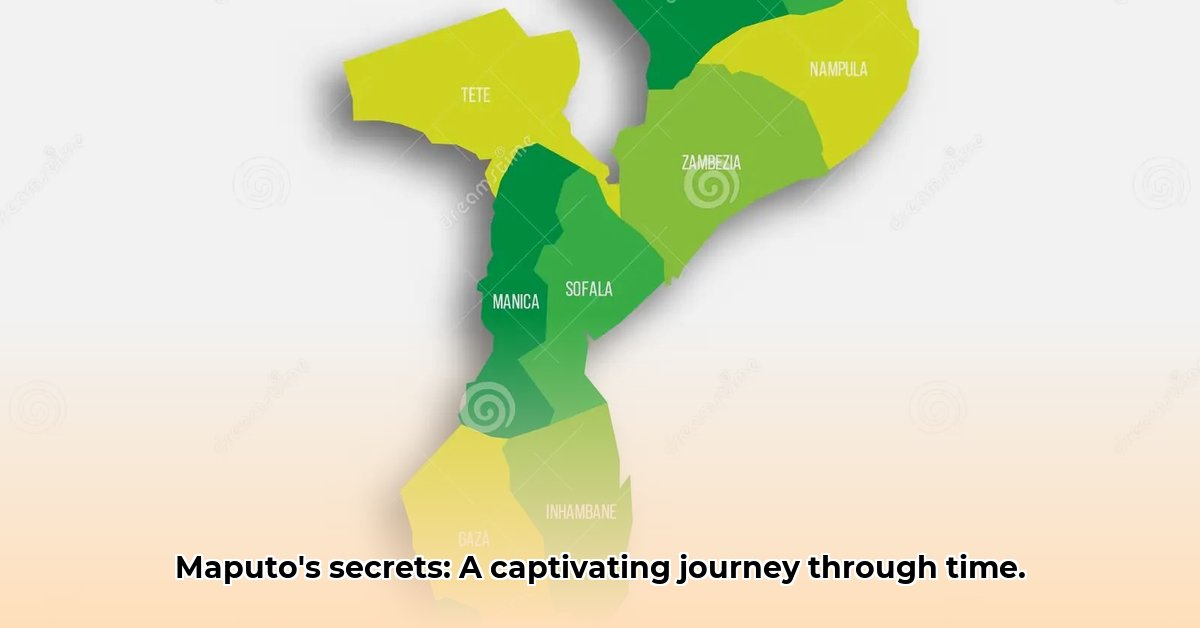
Maputo, Mozambique’s vibrant capital, whispers tales of a past both glorious and grim. From the brutal grip of Portuguese colonialism to a bloody civil war and the ongoing struggle for peace and prosperity, Maputo’s story mirrors Mozambique’s own complex journey. This article charts that journey, exploring the enduring legacies of the past and the challenges facing this resilient nation today.
Maputo: A Capital Forged in History
Maputo's story is deeply intertwined with Mozambique’s. Its rise as a significant port city under Portuguese rule laid the foundation for its current status as the nation's heart. But this heritage is complex, marked by both progress and exploitation. The city's modern architecture stands alongside stark reminders of colonial oppression and the lingering effects of a protracted civil war. How did this past shape the city’s present, and what challenges does it face today?
The Weight of Colonialism: A Legacy of Inequality
For over four centuries, Portugal's presence dominated Mozambique. Maputo, then Lourenço Marques, thrived as a trading hub, its port overflowing with ivory, gold, and tragically, enslaved people. This prosperity, however, was built on a foundation of exploitation. Professor Maria João Rocha, a historian specializing in Mozambican colonial history at the University of Lisbon, explains, "The Portuguese colonial system systematically disadvantaged the Mozambican population, creating vast wealth disparities that endure to this day." This unequal system, particularly concerning land ownership, where the best land was concentrated in the hands of a wealthy elite, remains a significant impediment to economic development and social justice. Isn't this a stark reminder of how historical injustices continue to cast a long shadow on present-day realities?
The Liberation Struggle and the Scars of Civil War
The fight for independence was far from peaceful. FRELIMO, the Mozambican Liberation Front, led a protracted struggle against Portuguese rule, triggering a devastating civil war from 1977 to 1992. The conflict drew in regional and global powers, including South Africa, Rhodesia (Zimbabwe), the USSR, and the USA, further complicating and intensifying the bloodshed. Dr. João Paulo, lead researcher at the Centre for Mozambican Studies, notes, "The war caused widespread destruction and displacement, creating deep social and economic scars that persist even now." This internal conflict severely hindered the country's development and left generations traumatized. Could a nation truly recover from such extensive trauma?
Reconstruction and the Ongoing Struggle for Peace
The 1992 peace agreement marked a significant turning point, but the path to recovery was far from easy. Maputo, like the rest of Mozambique, faced a monumental task in rebuilding its shattered infrastructure and its social fabric. Poverty, inequality, and the persistent threat of insurgency in Cabo Delgado continue to challenge the nation's progress. How can these multifaceted issues be addressed effectively? A holistic approach involves collaboration between the government, international organizations, the private sector, and Mozambican civil society, working towards sustainable and inclusive development. This isn't mere altruism; it's about fostering the very fabric of a stable and prosperous future for all Mozambicans.
Navigating a Complex Present: Risks and Opportunities
Mozambique confronts a complex array of challenges. A risk assessment reveals significant threats:
| Risk Category | Likelihood | Impact | Mitigation Strategies |
|---|---|---|---|
| Jihadist Insurgency | High | Very High | Strengthening security forces, addressing root causes of conflict, promoting inclusive governance |
| Climate Change Impacts | High | Very High | Investing in climate adaptation, improved disaster preparedness, sustainable development |
| Economic Instability | Medium | High | Economic diversification, strengthening governance, attracting responsible foreign investment |
| Corruption | Medium | High | Enhanced transparency and accountability, strengthening anti-corruption institutions |
| Land Tenure Disputes | Medium | Medium | Addressing historical injustices, clarifying land rights, promoting fair land distribution |
Climate change, for instance, is already impacting Mozambique with increasing intensity, from devastating cyclones to prolonged droughts. These interconnected risks demand comprehensive responses. However, Mozambique also possesses significant potential. Its rich natural resources, coupled with the resilience of its people, offer a pathway towards a brighter future. The country's success hinges on sound governance, effective policymaking, and continued international support.
Key Takeaways:
- Mozambique's history is marked by colonialism, a protracted civil war, and ongoing struggles for peace and development.
- The legacy of inequality, stemming from the colonial era, continues to hinder progress.
- Addressing contemporary challenges requires a multifaceted approach involving government, international partners, civil society, and the private sector.
- Despite significant obstacles, Mozambique possesses considerable potential for future growth and prosperity.